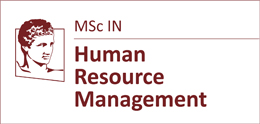Diversity Management & Internal Consulting
The primary aim of the course is to develop students’ competencies associated with managing a workforce characterized by diversity in age, gender, race, religion, disability, and sexual orientation. The course endeavours to combine academic and research rigour with a practical focus on promoting equality and diversity in the workplace enabling students to apply acquired theoretical and empirical knowledge to specific diversity management scenarios.
Students will become familiar with the drivers of increased workforce diversity, the psychological and sociological theories underlying discrimination and exclusion in organisations, current employment legislation related to diversity in Greece, and the barriers to equality of opportunity in the workforce for minority groups. Finally, students will examine “best practice” in diversity management programmes and learn to critically assess organizational policies and practices for managing workplace diversity.
In the rapidly changing and unstable business environment in which organizations operate today, Human Resource Management needs to undertake new roles and become a strategic partner, adding value. One of these roles is that of the internal consultant. In order to meet the requirements of this role, human resource executives must function proactively, identifying areas for potential intervention and suggesting changes in cooperation with line managers, aiming at the most effective cross-departmental functioning.
The objective of this course is to help participants understand the importance of internal consulting and develop the necessary skills in order to successfully meet the requirements of an HR professional.
Contents:
- What is Internal Consulting
- How HR will become an Internal Consultant
- Stages of Internal Consulting
- The multiple roles of HR as Internal Consultant
- Identifying the needs of internal clients
- Personal credibility – Influence
- Relationship management –Cross-departmental communication
- Coaching and Consulting
- HR as collaborative leader
- The role of emotional intelligence
The methodology includes lectures, case studies, individual and group exercises and diagnostic tools so that the participants will be able to elaborate on the various topics from a Human Resource executive perspective.


